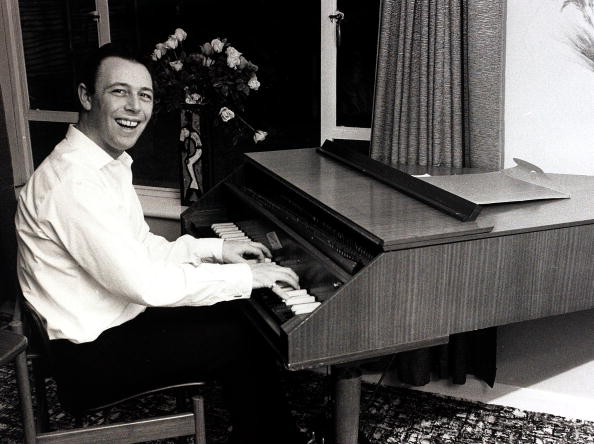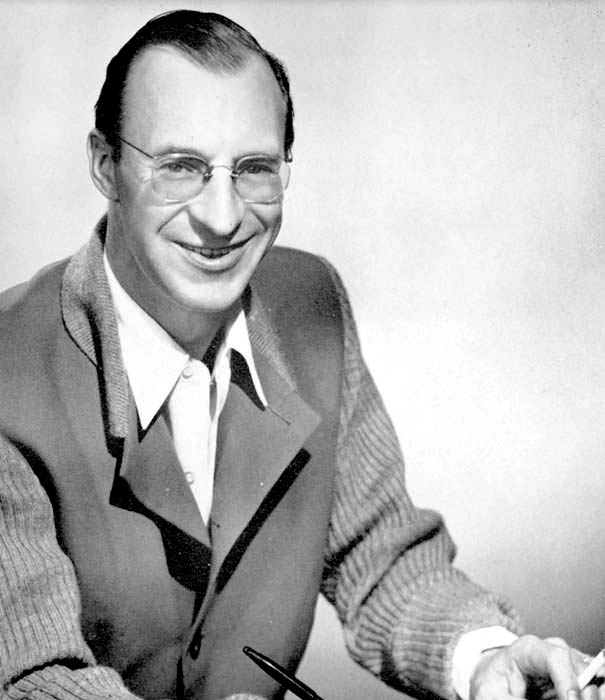Norrie Paramor

Norrie Paramor Original Recordings - Word doc ( 46 kB)
Norrie Paramor Original Recordings - RTF file ( 27 kB)
Born 15 May 1914, London, England, died 9 September 1979. The most prolific producer of UK pop chart-toppers was a mild, bespectacled gentleman who had studied piano and worked as an accompanist, prior to playing and arranging with a number of London dance bands, among them Maurice Winnick's Orchestra. During his time in the RAF during World War II, Paramor entertained servicemen in the company of artists such as Sidney Torch and Max Wall, served as a musical director for Ralph Reader's Gang Shows, and scored music for Noel Coward, Mantovani and Jack Buchanan.
After the war he was the featured pianist with Harry Gold And His Pieces Of Eight, and toured with the lively Dixieland unit for five years. In 1950 he recorded some sides for the Oriole label with Australian singer Marie Benson, and two years later, joined Columbia Records, an EMI subsidiary, as arranger and A&R manager. In 1954, he produced the first of two UK number 1 hits for Eddie Calvert, and another for Ruby Murray the following year. Although quoted as believing that rock 'n' roll was 'an American phenomenon - and they do it best', he still provided Columbia with such an act in Tony Crombie's Rockets, but had better luck with the mainstream efforts of Michael Holliday and the Mudlarks - both backed by the Ken Jones Orchestra. Then, in 1958, a demo tape by Cliff Richard And The Drifters arrived on his desk. With no rock 'n' roller currently on his books, he contracted Richard, intending to play it safe with a US cover version with the Jones band, until he was persuaded to stick with the Drifters (soon renamed the Shadows) and push a group original ('Move It') as the a-side. Partly through newspaper publicity engineered by Paramor, 'Move It' was a huge hit, and a subsequent policy was instigated of Richard recording singles of untried numbers - among them, at Paramor's insistence, Lionel Bart's 'Living Doll'. Columbia was also successful with the Shadows - even though Paramor initially wished to issue Apache' - their first smash - as a b-side. Later, he offended Shadows purists by augmenting the quartet on disc with horn sections and his trademark lush string arrangements. Other Paramor signings were not allowed to develop to the same idiosyncratic extent as Richard and his associates. Ricky Valance achieved his sole chart-topper with a cover version of Ray Peterson's US hit 'Tell Laura I Love Her', while Helen Shapiro was visualized as a vague 'answer' to Brenda Lee; Paramor even booked and supervised some Shapiro sessions in Nashville in 1963. His greatest success during this period, however, was with Frank Ifield, who dominated the early 60s' UK pop scene with three formidable number 1 hits. Even as late as 1968, Paramor notched up another number 1 with Scaffold's 'Lily The Pink'. Throughout his career, Paramor wrote, and co-wrote, many hit songs, several of them for films, such as Expresses Bongo ('A Voice In The Wilderness', Cliff Richard), The Young Ones ('The Savage') and The Frightened City (title song), both performed by the Shadows, Play It Cool ('Once Upon A Dream', Billy Fury), It's Trad, Dad' ('Let's Talk About Love', Helen Shapiro) and Band Of Thieves ('Lonely', Acker Bilk). He also composed several complete movie scores, and some light orchestral works such as 'The Zodiac' and 'Emotions', which he recorded with his Concert Orchestra, and released several 'mood' albums in the USA, including London After Dark Amore, Amore, Autumn and In London, In Love, which made the US Top 20. In complete contrast, the Big Ben Banjo, and Big Ben Hawaiian Bands, along with similar 'happy-go-lucky' 'trad jazz' line-ups, were originally formed in 1955 purely as recording units, utilizing the cream of UK session musicians. Paramor was in charge of them all, and their popularity was such that 'live' performances had to be organized. The Big Ben Banjo Band appeared at the Royal Variety Performance in 1958, and were resident on BBC Radio's Everybody Step programme, as well as having their own Radio Luxembourg series. Two of the band's 'Let's Get Together' singles, and More Minstrel Melodies, reached the UK Top 20. One of the highlights of Paramor's career came in 1960 when he arranged and conducted for Judy Garland's British recording sessions, and was her musical director at the London Palladium and subsequent dates in Europe. In the same year, with his Orchestra, he made the UK singles chart with 'Theme From A Summer Place' and in 1962, registered again with 'Theme From Z Cars'. From 1972-78 Paramor was the Director of the BBC Midland Radio Orchestra, but he continued to dabble in independent production for acts such as the Excaliburs, and his publishing company was still finding material for Cliff in the 70s. Paramor remains one of the most underrated figures in the history of UK pop and a posthumous reappraisal of his work is overdue.



